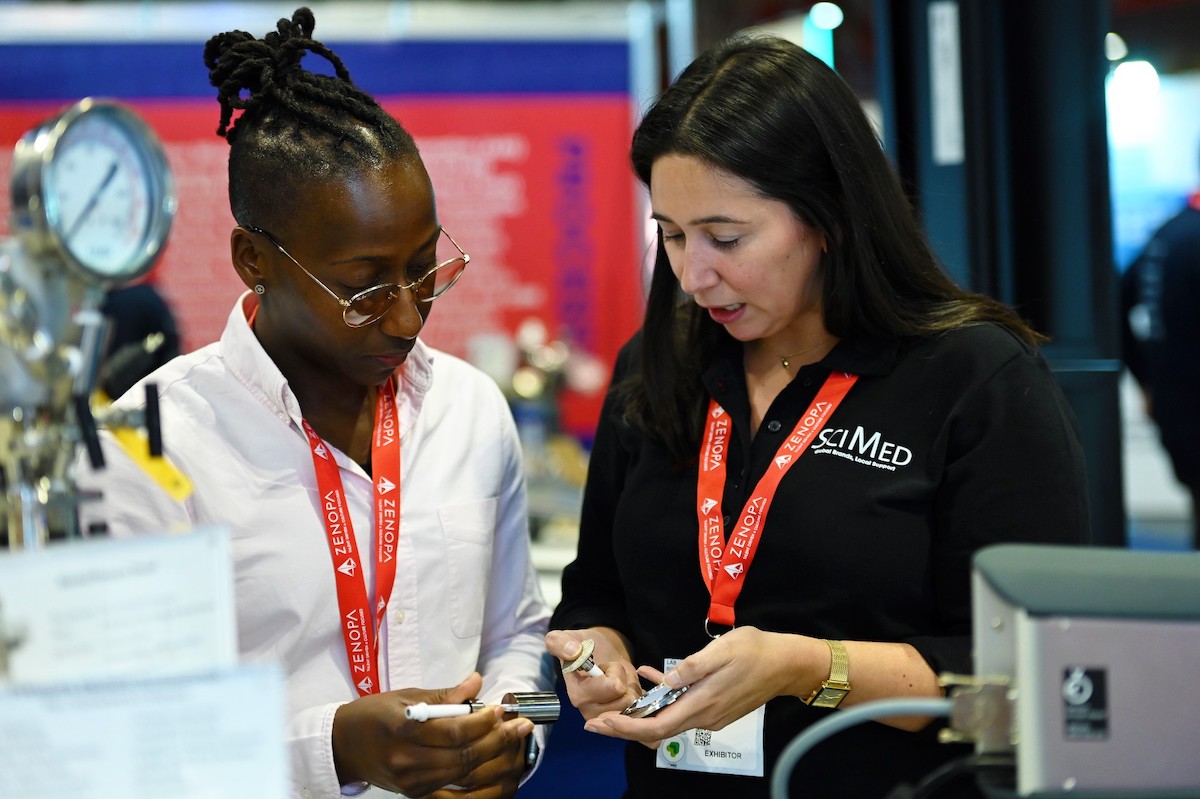Channels
Special Offers & Promotions
Improving lab sustainability with green solvents

Research labs are complicated environments and it is not always clear what can be done to improve sustainability. To date, most of the discussion around sustainability has focussed on the energy efficiency of instruments and equipment, such as fume hoods and cryogenic freezers. While this is important, it means that things like chemical and solvent selection are overlooked. Here Paul Vanden Branden, Director at SciMed, an exhibitor at Lab Innovations 2023 and member of the show’s advisory board, discusses ways that laboratories can update experimental methods and solvent selection to be more sustainable without harming results.
Climate change is arguably the most pressing issue of our time, with many scientists warning that, if significant progress is not made towards becoming a more sustainable society, damage to the planet will become irreversible. The UK Government has committed in legislation to achieve net-zero carbon emissions by 2050, but this is unlikely to happen unless there are substantial changes across industrial sectors such as the lab industry.
University College London’s sustainability report for 2021 reported that roughly half of the university’s emissions came from its laboratories. The findings of this report, and others like it, indicate that laboratories must do more. Ultimately, this means the lab industry will significantly impact the likelihood of meeting the net-zero by 2050 goal. Therefore, laboratories must address problems such energy consumption as well as chemical and solvent selection.
Switching to green solvents
Organic solvents, such as hexane, are commonly used in various chemical processes, such as separations and extractions, but are quite environmentally harmful. Therefore, a key goal for the lab industry is to reduce their use in favour of green solvent alternatives.
Hexane is widely used for extracting oil contaminants from water and soil for analysis and for extracting edible oils from seeds and vegetables because of its efficiency in these experiments, which could not traditionally be matched by alternatives. However, supercritical CO2 systems now allow comparable results to be achieved without using such a harmful chemical.
For example, supercritical liquid CO2 is non-flammable, non-toxic, not environmentally harmful, easy to prepare and does not contribute to global warming because any process CO2 is recycled back into the system. Supercritical fluid extraction (SFE) is an area of growing interest and CO2 is the most common supercritical fluid used in SFE procedures as a replacement for traditional hexane use.
SFE is performed by pumping supercritical CO2 through a fixed bed of substrate where the CO2 flows through the substrate and dissolves soluble components until they are depleted. The loaded solvent is then passed through a separator where the soluble components are precipitated by adjusting the temperature and pressure before the CO2 is condensed and recirculated.
By controlling the density of supercritical CO2 fluids, they can replicate the performance of various organic solvents whose polarities range from n-pentane, at the lowest density, to pyridine, at the highest. This feature allows selective extraction, purification and fractionation procedures to be performed.
This just one of many examples of ways the lab industry can improve chemical and solvent selection in experimentation to improve sustainability without negatively impacting results. At this year’s Lab Innovations, visitors will be able to see many of these methods first hand and speak to the industry’s leading experts about how they can improve sustainability in their labs.
The Sustainable Laboratory will return to Lab Innovations in 2023, hosted by Andy Evans, director of Green Light Laboratories, and offer insight into ways labs can become more sustainable and share some data-driven case studies. Furthermore, the show will once again host the sustainability trail, which was new to Lab Innovations in 2022, to give visitors a guided tour of some of the key exhibitors making a positive impact on lab sustainability.
As the largest Lab Innovations exhibition yet, 2023’s show is set to be a must-attend event for the whole lab industry. To attend Lab Innovations 2023, taking place on November 1 and 2 at the NEC, Birmingham, visit the show’s website and register for this year’s show. And to find out more about sustainable lab practices, visit SciMed on stand E70 at the show.
Lab Innovations has fast become the UK’s must-attend event for the entire laboratory industry. Supported by some of the UK’s top science institutions, it is a key event for powering the business of science.
The show floor is bursting with innovations from more than 160 leading scientific suppliers and manufacturers showcasing the latest laboratory developments and equipment. Exhibitors present the most cutting-edge technology applicable to a plethora of industries including life sciences, pharmaceuticals, academia, healthcare, chemical, food & drink, cleanroom and more.
Easyfairs organises and hosts events, bringing communities together to visit the future.
We currently organise 200 face-to-face events in 14 countries (Algeria, Belgium, Denmark, Finland, France, Germany, Italy, the Netherlands, Norway, Portugal, Spain, Sweden, Switzerland and the United Kingdom) and manage eight event venues in Belgium, the Netherlands and Sweden (Antwerp, Ghent, Mechelen-Brussels North, Namur, Gorinchem, Hardenberg, Malmö and Stockholm).
We are passionate about “easifying” the life of our customers and increasing the return on investment and return on time for professional communities through our all-in formulas, advanced technology and customer-centric approach. Our digital features and initiatives provide these communities with excellent opportunities to network effectively and do business throughout the year. We listen carefully to create compelling online formats that meet their constantly evolving needs.
The Easyfairs Group employs 700 highly committed talents, deploys the best marketing and technology tools, and develops brands with a strong appeal to our stakeholder communities.
In 2018 Easyfairs was named Belgium’s “Entrepreneur of the Year®” and a “Great Place to Work”. For the fourth year running, Deloitte conferred “Best Managed Company” status on Easyfairs in 2022.
The company is ranked 17th in the list of the world’s leading exhibition companies.
Media Partners


